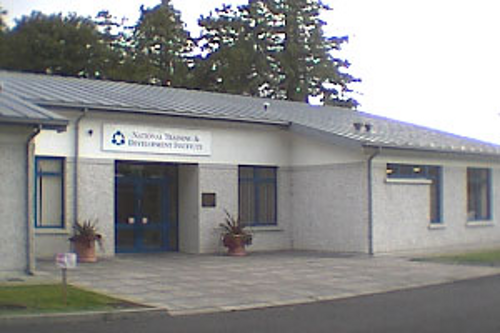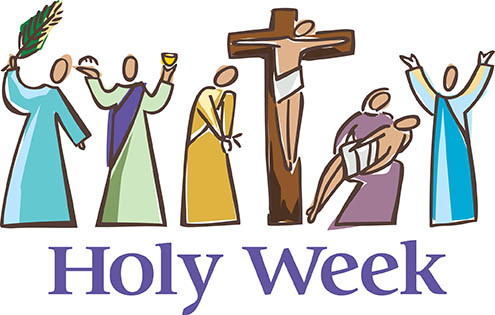PARISH INFORMATION
Priest of the Parish: Fr. Michael Hegarty I.C.
Deacon for the Clonmel Pastoral Area: Rev. Lazarus Gidolf
In Residence: Fr. James Pollock I.C.
Sister: Sr. Mary Muckley Tel: 6125235
Parish Office: Open Monday – Thursday 9.00 a.m. – 5.00 p.m. Office Closed on Friday
Tel: 6125679 E Mail stoliver@eircom.net
Parish Website:www.stoliverspc.org
Facebook Page: https://www.facebook.com/stoliverspc
Society of St. Vincent de Paul Helpline 052 – 6123878
Local Safeguarding Representatives: Margaret Waters 086-8917440 Fiona Stanley 087-9340382
Bereavement Support: Tel 6125679
Masses for Weekend
Saturday 7.30 p.m. Willie & Alice Fitzgerald (Anniv)
Sunday 9.00 a.m. Marian Keane & Annette Greene (Anniv) 12 Noon Gerald & Bridget Fogarty (Anniv)
Anam Cara is holding a Bereavement Information Evening on Monday 16th January from 7.30 p.m. – 9.00 p.m. in the Horse and Jockey Hotel. The guest speaker for the evening is Peter McCartan. This is a free event open to all bereaved parents.
Clonmel Allotments and Community Gardens Association The Annual General Meeting of the CACGA will take place on Wednesday night 18th January in St. Oliver’s Parish Centre from 7.30 p.m. – 9.30 p.m. All members need to attend to sign their membership forms which will be at the meeting. Membership fees are also due. For more information Tel Bernard 086-2937220 or Billy 086-0869999.
A Traditional Latin Mass with Gregorian Chant will be celebrated on Sunday 22nd January at 10.00 a.m. in Holy Trinity Cathedral, Barronstrand Street, Waterford city. All are welcome.
Our Family Mass Our next Family Mass is at 12 Noon on Sunday 5th February.
Come and See about Vocation to the Priesthood on Friday 17th and Saturday 18th February at Pallottine House, Thurles. See poster for details and contact numbers.
Family Carers Ireland Looking for a career in the care sector? Family Carers Ireland are providing the QQ1 Level 5 Healthcare Award in 2017 in your area based on demand. One day topic specific workshops also available. For information contact the training unit Tel 057-9322920.
Waterford & Lismore Diocesan Pilgrimage to Lourdes 59th Annual Diocesan Pilgrimage will take place from Tuesday 6th – Sunday 11th June 2017. Information for sick pilgrims: contact John Healy Tel 052-6123791. Booking Forms available from St. Oliver’s Parish Office.
St. Vincent de Paul would like to thank sincerely all those who contributed to their Annual Christmas collection and monthly collections throughout the year. Your support is most appreciated.
Welcome into our Christian Community Jason and Thomas Ryan who were baptised recently.
Eternal Rest to Mary Fennessy late of 49 Honeyview Estate who died last weekend.
Items Found in Church recently include a watch and a pair of glasses.
HELP! Youth Suicide Prevention Ireland For Free Text Suicide Crisis Information TEXT HELP to 50015 This service is free to use and you can text 50015 even if you have no credit. Available 24 hours a day.
Offertory Collections
Sun 25th December Envelopes – €791.87 Notes and Coin – €1551.53 (Christmas Day)
Sun 1st January Envelopes – €716.65 Notes and Coin – € 461.35
Fri 6th January Envelopes– €258.15 Notes and Coin – € 209.85
Sun 8th January Envelopes – €673.12 Notes and Coin – € 629.88 Thank You.
This Sunday is World Day of Migrants and Refugees
Here are some extracts from the message of Pope Francis:
(…) On the occasion of the annual World Day of Migrants and Refugees, I feel compelled to draw attention to the reality of child migrants, especially the ones who are alone. In doing so I ask everyone to take care of the young, who in a threefold way are defenceless: they are children, they are foreigners, and they have no means to protect themselves. I ask everyone to help those who, for various reasons, are forced to live far from their homeland and are separated from their families.
Migration today is not a phenomenon limited to some areas of the planet. It affects all continents and is growing into a tragic situation of global proportions. Not only does this concern those looking for dignified work or better living conditions, but also men and women, the elderly and children, who are forced to leave their homes in the hope of finding safety, peace and security. Children are the first among those to pay the heavy toll of emigration, almost always caused by violence, poverty, environmental conditions, as well as the negative aspects of globalization. The unrestrained competition of quick and easy profit brings with it the cultivation of perverse scourges such as child trafficking, and exploitation and abuse of minors and, generally, the depriving of rights intrinsic to childhood as sanctioned by the International Convention on the Rights of the Child.
Childhood, given its fragile nature, has unique and inalienable needs. Above all else, there is the right to a healthy and secure family environment, where a child can grow under the guidance and example of a father and a mother; then there is the right and duty to receive adequate education, primarily in the family and also in the school, where children can grow as persons and agents of their own future and the future of their respective countries. Indeed, in many areas of the world, reading, writing, and the most basic arithmetic is still the privilege of only a few. All children, furthermore, have the right to recreation; in a word, they have the right to be children.
And yet among migrants, children constitute the most vulnerable group, because as they face the life ahead of them, they are invisible and voiceless: their precarious situation deprives them of documentation, hiding them from the world’s eyes, the absence of adults to accompany them prevents their voices from being raised and heard. In this way, migrant children easily end up at the lowest levels of human degradation, where illegality and violence destroy the future of too many innocents, while the network of child abuse is difficult to break up.
How should we respond to this reality? Pope Francis asks the question. Let us pray about the answer.




 by
by 

